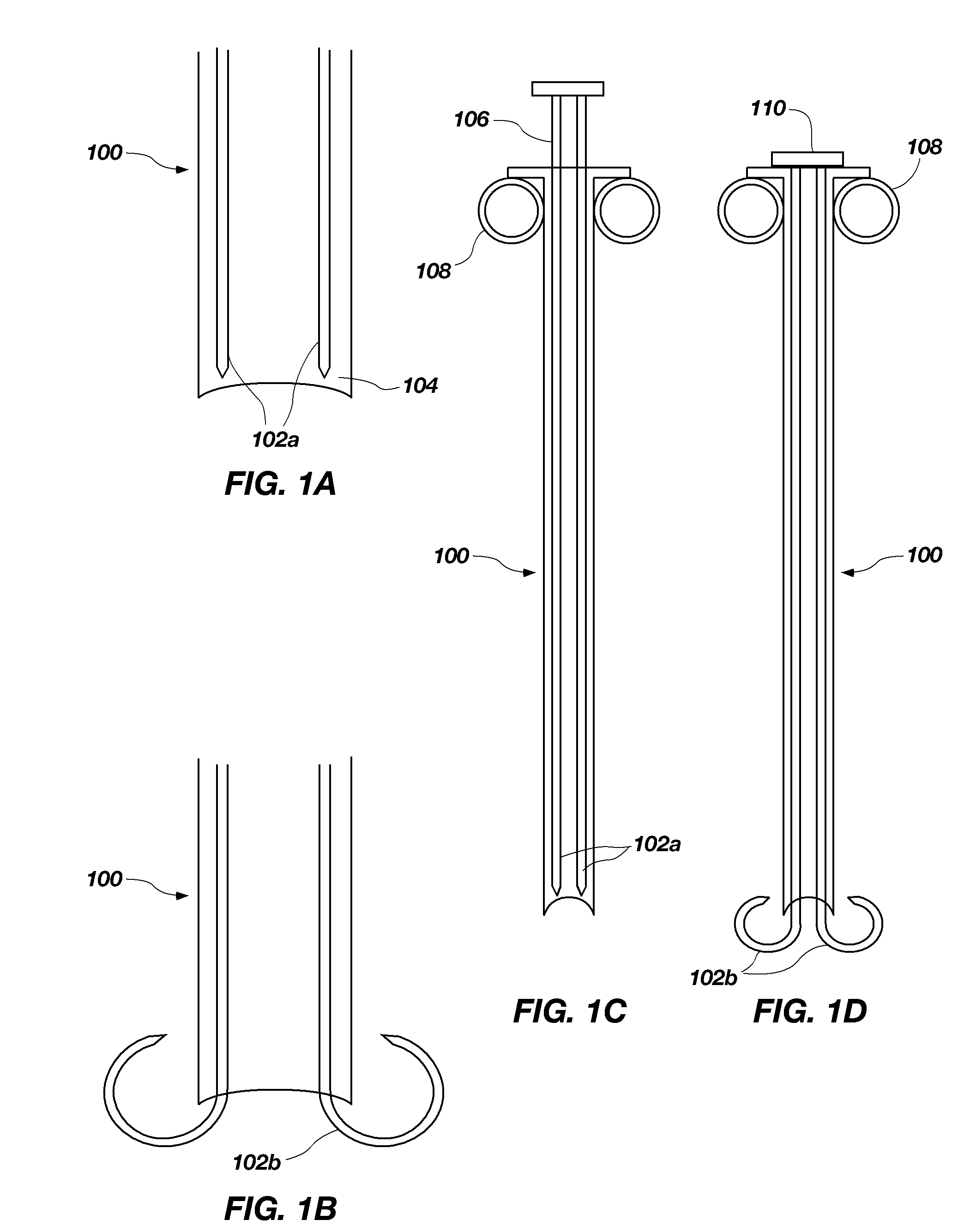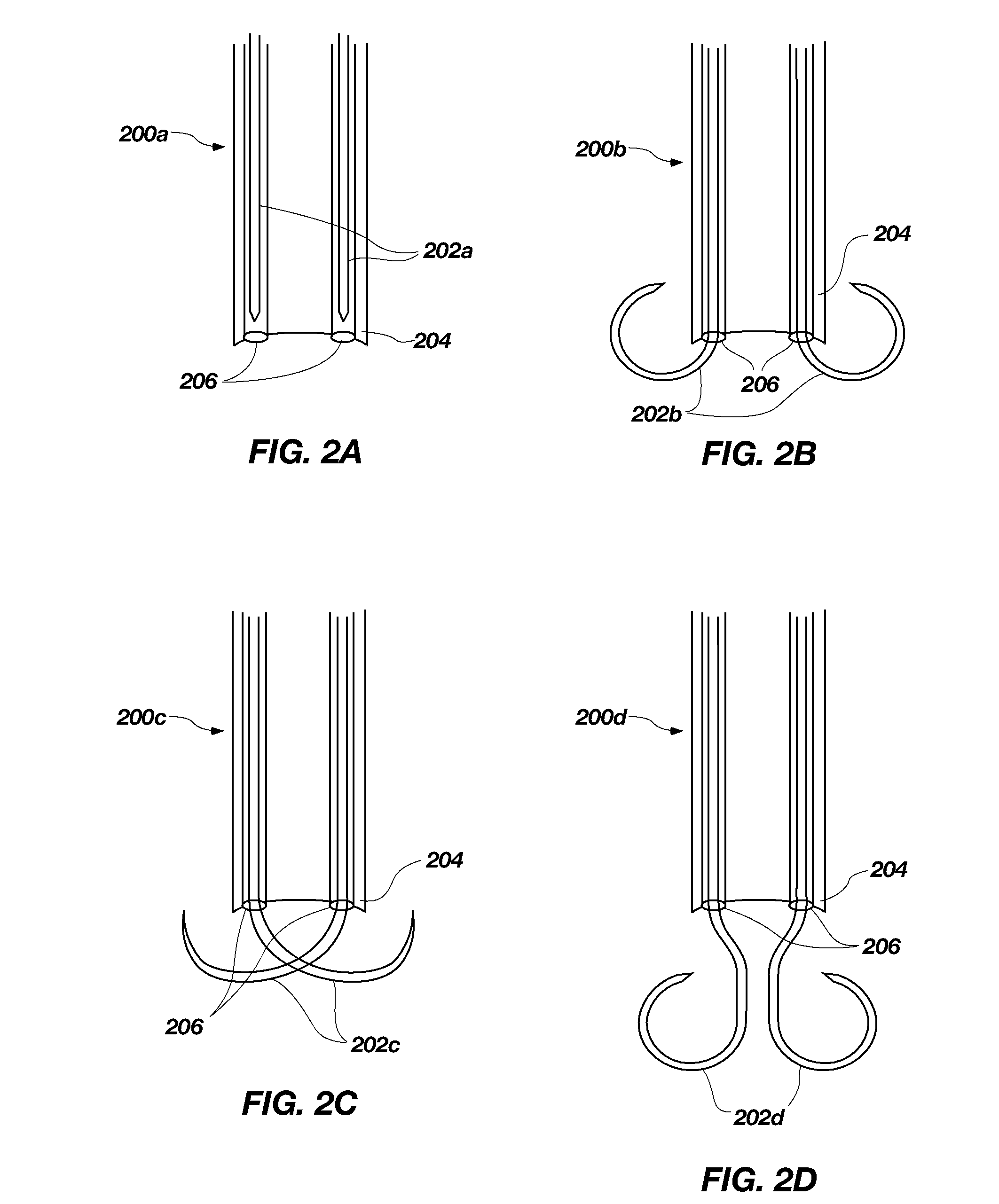Redundant Tissue Closure Methods and Apparatuses
a tissue closure and equipment technology, applied in the field of tissue closure equipment and methods, can solve the problems of high rate of post-puncture hemorrhage, high failure rate of tissue closure methods and devices, and many currently employed vascular sealing methods and devices, so as to improve wound healing and patient safety, reduce the chance of intravascular thrombosis or embolism or intimal hyperplasia, and reduce the chance of endothelial disruption
- Summary
- Abstract
- Description
- Claims
- Application Information
AI Technical Summary
Benefits of technology
Problems solved by technology
Method used
Image
Examples
Embodiment Construction
[0029]The present disclosure provides apparatuses and methods for closing a vascular puncture wound or any tissue aperture, for example those resulting from the insertion of a vascular catheter or surgical instrument, trauma or disease. The apparatuses and methods disclosed herein provide a redundancy of closure, which enhances wound healing and patient safety. The devices and methods described herein are configured for wound closure on the external surface of the wound, which allows wound healing with little endothelial disruption and thereby reducing the chances of intravascular thrombosis or embolism or intimal hyperplasia.
[0030]The description included herein refers to “vessels” for convenience; the present disclosure is applicable to facilitate closure of various types of tissue openings.
[0031]The present disclosure describes a closure device for closing an opening in a tissue. An exemplary tissue closure device according to the present disclosure includes at least one tubular ...
PUM
 Login to View More
Login to View More Abstract
Description
Claims
Application Information
 Login to View More
Login to View More - R&D
- Intellectual Property
- Life Sciences
- Materials
- Tech Scout
- Unparalleled Data Quality
- Higher Quality Content
- 60% Fewer Hallucinations
Browse by: Latest US Patents, China's latest patents, Technical Efficacy Thesaurus, Application Domain, Technology Topic, Popular Technical Reports.
© 2025 PatSnap. All rights reserved.Legal|Privacy policy|Modern Slavery Act Transparency Statement|Sitemap|About US| Contact US: help@patsnap.com



